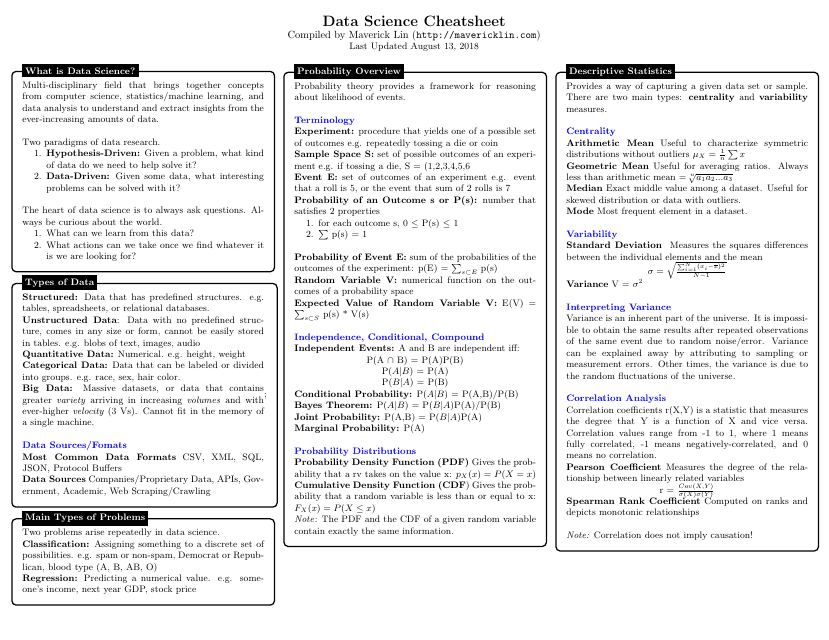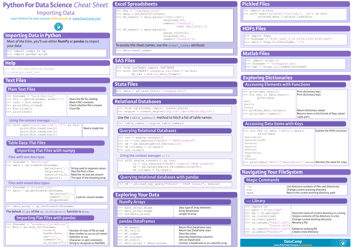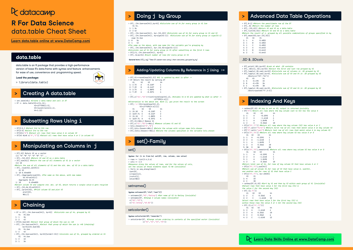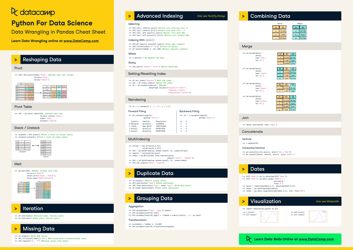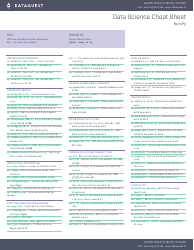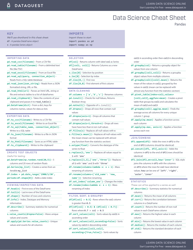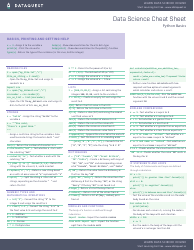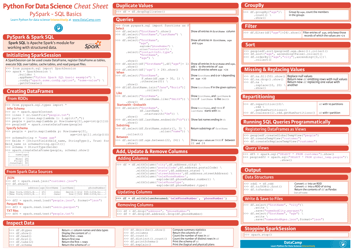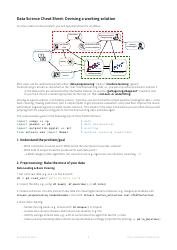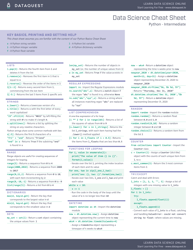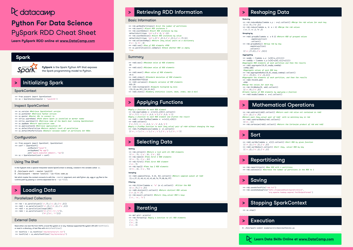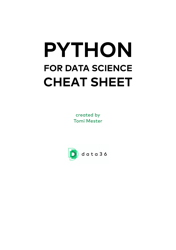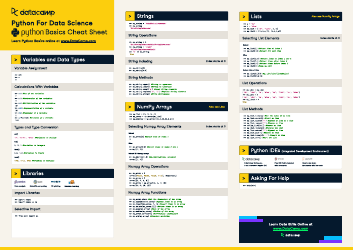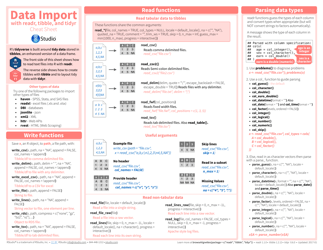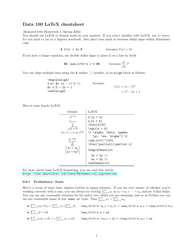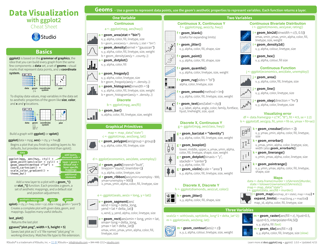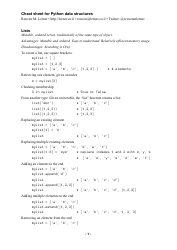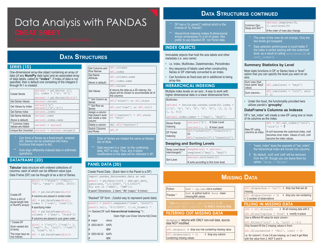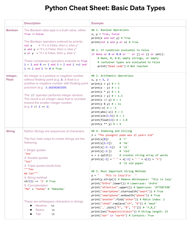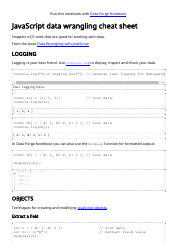Data Science Cheat Sheet
A Data Science Cheat Sheet is a condensed reference guide that provides quick and helpful information on various aspects of data science. It is designed to assist data scientists and analysts in their work by providing them with key concepts, algorithms, equations, programming syntax, and other relevant information in a concise and accessible format.
FAQ
Q: What is data science?
A: Data science is a multidisciplinary field that uses scientific methods, processes, algorithms, and systems to extract knowledge and insights from structured and unstructured data.
Q: What are some commonly used programming languages in data science?
A: Some commonly used programming languages in data science are Python, R, and SQL.
Q: What is machine learning?
A: Machine learning is a subset of artificial intelligence that involves the development of algorithms and statistical models that enable computers to learn and make predictions or decisions without being explicitly programmed.
Q: How is data science used in business?
A: Data science is used in business for various purposes such as optimizing marketing strategies, improving customer experience, predicting sales, fraud detection, and analyzing market trends.
Q: What skills are required to become a data scientist?
A: Skills required to become a data scientist include programming, statistics, machine learning, data visualization, and domain expertise in the field being analyzed.
Q: What are the steps involved in the data science process?
A: The data science process typically involves problem identification, data collection and preprocessing, exploratory data analysis, modeling, evaluation, and deployment.
Q: What is the difference between supervised and unsupervised learning?
A: Supervised learning involves training a model using labeled data, while unsupervised learning involves discovering patterns or relationships in unlabeled data.
Q: What is the role of a data engineer in data science?
A: A data engineer is responsible for designing, building, and maintaining the infrastructure and systems that enable efficient and reliable data collection, storage, and processing.
Q: What are some challenges in data science?
A: Challenges in data science include data quality and reliability, privacy and ethical considerations, computation and storage limitations, and keeping up with rapidly evolving technologies and techniques.
Q: What is the future of data science?
A: The future of data science looks promising, with increasing demand for data-driven decision making in various industries and advancements in artificial intelligence and big data technologies.
